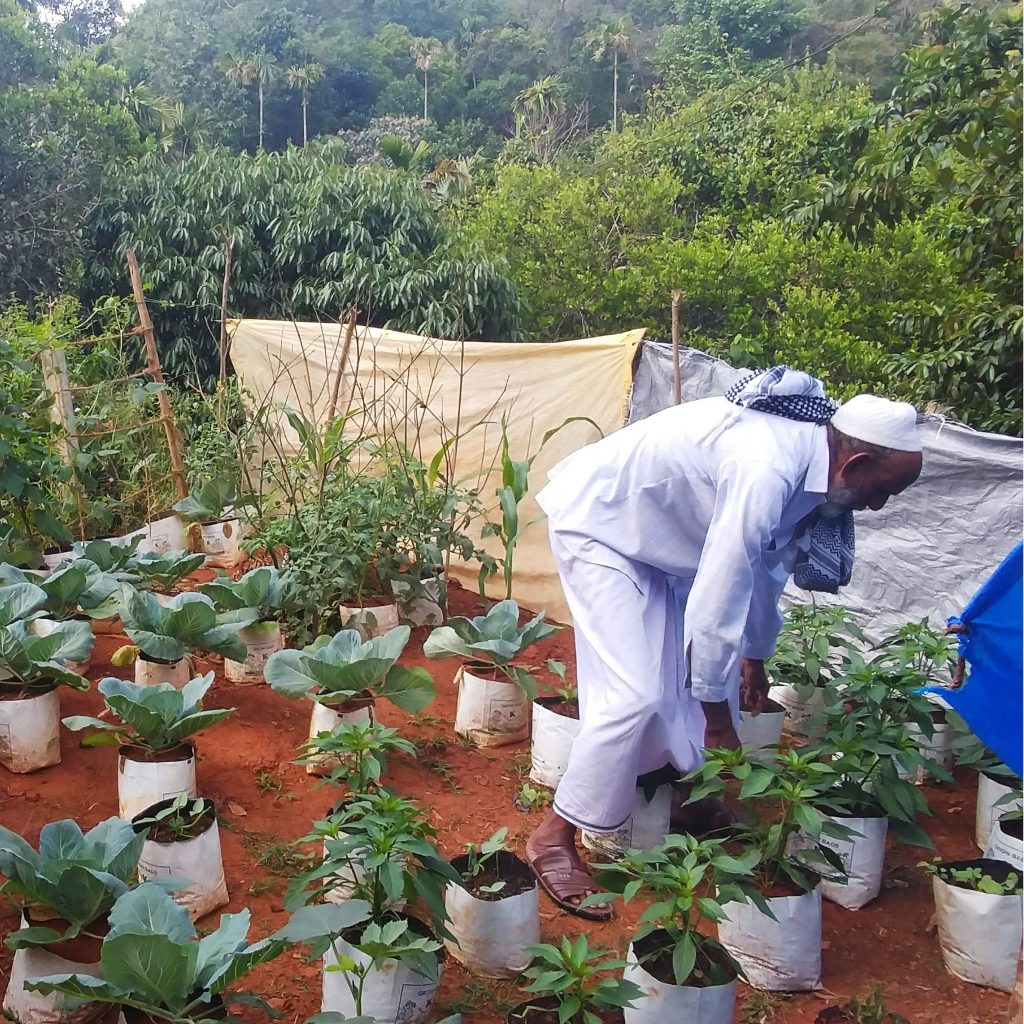I recently revisited a cookbook a friend gifted me a couple of years ago.  I wanted to make Indian food at home and practice combining & balancing spices. I didn’t realize Healthy Indian Cooking for Vitality and Wellness by Monisha Bharadwaj would be a jumping off point for me to delve into basic ayurvedic wellness practices.
I wanted to make Indian food at home and practice combining & balancing spices. I didn’t realize Healthy Indian Cooking for Vitality and Wellness by Monisha Bharadwaj would be a jumping off point for me to delve into basic ayurvedic wellness practices.
As Monisha states in her cookbook introduction, Ayurveda is “an ancient Indian science of holistic healing and herbal medicine aimed at maintaining physical, mental, and spiritual well-being”. She introduces the wisdom and states it is the basis of all Indian cooking and remains a way of life. Ayurveda links one’s mental, physical, and spiritual well-being, making it a holistic approach to health maintenance—and I thought I was making a snack!
Ayurveda is based on five elements—air, fire, earth, wind, and ether. These five elements symbolize different aspects of one’s daily motivations and health promotion. Monisha lists what each element signifies: air promotes health, fire is a purification, water is movement, earth is energy and ether is one’s spirit. When elements are in balance, good health follows.
What I found most interesting about Ayurveda is that the practice goes in-depth and can be personalized depending on one’s personality and history. Ayurveda stresses individual-centered health because no person is alike, and it takes times to understand one’s body. Monisha shares each person has a unique energy, presented at birth called prakruti. There are three categories based on one’s prakruti—vata, pitta, and kapha. The vata, pitta, and kapha are called doshas (energies), and they represent the five elements, but specific combinations govern each one. Vata is governed by air and ether; pitta is governed by fire and water; kapha is governed by water and earth. Each person is one, or a combination, of these three energies. I have come to learn, I hold kapha, with some pitta, energy.
Outside of cooking and eating, one’s doshas can be applied in other realms in daily life. The Ayurvedic clock helps to organize the day by sectioning time by six four-hour periods (one for the day and one during the night) and categorized by the three doshas. The morning (6 a.m. to 10 a.m.) is dedicated to kapha, the middle of the day (10 a.m. to 2 p.m.) belongs to pitta, and the afternoon (2 p.m. to 6 p.m.) is vata. The cycle begins again after 6 p.m. There are guidelines to abide by help adhere and be committed to the schedule for optimal results. I have yet to undertake a full day to the ayurvedic clock but have noticed points where I am at the gym are during pitta, I have a very productive workout.
Ayurveda is now practiced all over the world to help people take control of their health, but it has been practiced for thousands of years in India and has deep roots in Kerala.
In Kerala, Ayurveda is a lifestyle and practiced by many within the state. According to Kerala Tourism board, it is the only state in India that practices Ayurvedic medicine with perseverance. There is an abundance of plants used for medicinal purposes and are available for use all year long. The climate is also ideal for all forms of Ayurveda practices; with temperatures averaging 78.8° F (26°C) during the rainy season, it is perfect for treatments. People visit Kerala to partake in the Ayurveda therapies year-round.
Profugo’s Center of Development is based in Wayanad, a northern district of Kerala. Currently ongoing on the field is this year’s Organic Kitchen Garden (OKG), an annual project held October to March. The OKG project encourages community members to grow organic vegetables used for healthful nutrition for the family without harmful pesticides and chemicals. With added access to healthy food options, an optimal Ayurvedic diet and lifestyle can be achieved.
Amid immense saturation of choices regarding health and wellbeing worldwide, it is refreshing to read more about Ayurveda medicine and its origins. The individual-centered, personalized approach within the practice allows everyone to be able to participate in aspects of Ayurveda. I think this calls for chai! Chalo!

Leave a Reply
You must be logged in to post a comment.